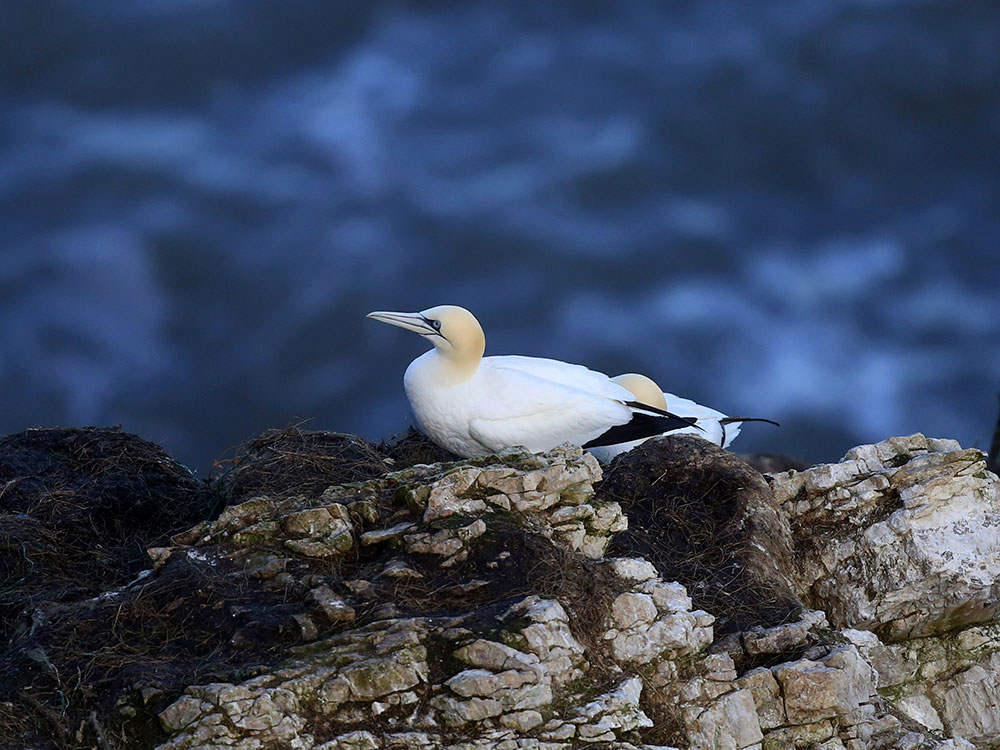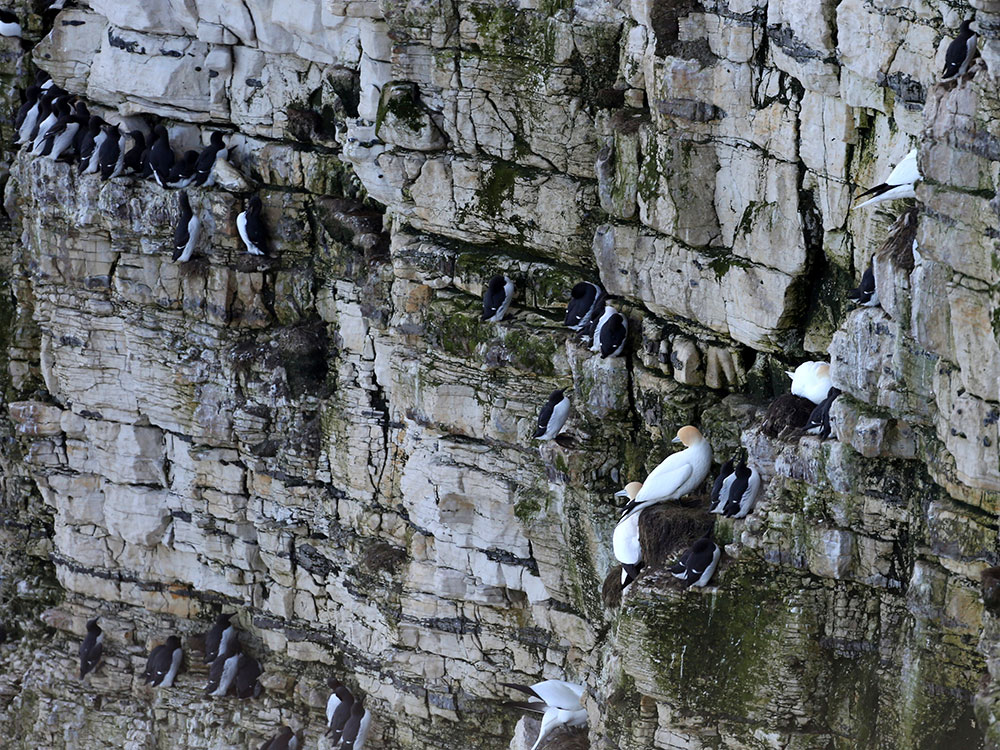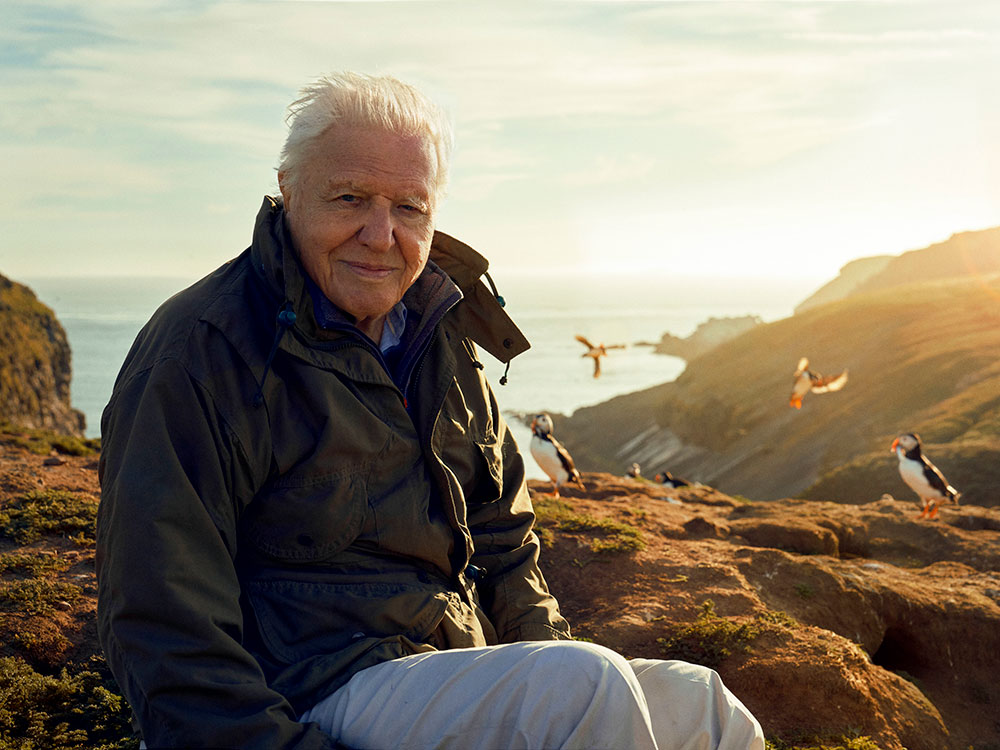A favourite wildlife haven in Yorkshire stars in Sir David Attenborough’s latest TV series.
RSPB Bempton Cliffs is part of Wild Isles, the series that celebrate the wonders of the UK, which premiered on BBC One last night.
The series is a collaboration between the RSPB, WWF and The Open University
They have combined to launch a campaign, Save Our Wild Isles, which launches today (Monday).
At RSPB Bempton Cliffs, near Bridlington, the RPSB works to provide and protect habitats for threatened species like puffins, gannets and kittiwakes, but their food source, sandeels, are becoming harder to find because of climate change and human activity.
As sea temperatures rise, the fish these seabirds rely on swim deeper in search of cooler waters, making it much harder for diving birds to find a meal.
The RSPB says these small fish are critical for seabirds, including some of our most threatened species. This in turn is affecting their overall productivity, meaning they produce fewer chicks each year and which affects the whole species.
“Without urgent intervention, things will only get worse,” a spokesperson said.

Site manager, Dave O’Hara, said: “Global seabird populations have declined by 70 per cent since 1950, making seabirds the most threatened group of birds in the world. Lots of our seabirds here at Bempton Cliffs have been affected.
“We predict that the UK’s puffin population could reduce 90 per cent by 2050 if global temperatures continue to rise unchecked. They’re facing threats to both their nesting sites and their food supply, and the climate crisis is only making things worse.”
Every year, the RSPB’s seabird research team carries out our seabird monitoring programme along the cliffs of Bempton, Flamborough, and Filey. This is carried out by a seabird research team, reserve staff and lots of dedicated volunteers.
Visitor experience manager, Poppy Rummery, added: “Bempton Cliffs nature reserve is a special place.

“The Flamborough and Filey Coast Special Protected Area supports the largest mainland seabird colony in England. The 5km of sea cliffs are internationally important because of the huge numbers of seabirds, including puffins, gannets, kittiwakes, guillemots and razorbills, which raise their young here in spring and summer.
“Due to the nature of the site, the importance of the seabird colony that calls this place home, and the level of site protection we have here, Bempton is the ideal place to monitor seabirds.”
- Five episodes of Wild Isles are being broadcast on BBC One and iPlayer
- The RSPB and Bempton Cliffs are always looking for more volunteers to help with seabird monitoring and other conservation work. The volunteering page has information about how to get involved
[tptn_list limit=3 daily=1 hour_range=1]
